What New Science Means for Divers
Article by Alex Brylske
The world’s coral reefs face a relentless threat from warming oceans. Rising sea surface temperatures have caused more frequent and severe bleaching events, leaving many reefs struggling to survive. Scientists warn that without urgent global climate action, most coral reef ecosystems could undergo widespread decline—or even functional extinction—within the next few decades.
However, growing research indicates that not all reefs are equally vulnerable. Some seem to withstand or recover more effectively from thermal stress. A new study from Palau, published in PLOS Climate and summarized in the Island Times, highlights one of the most promising pathways for coral survival: the role of thermal refugia.
Led by Dr. Liam Lachs of Newcastle University and the University of Queensland, the Palau study identified areas where natural environmental conditions protect corals from extreme heat. These thermal refugia can occur where ocean currents bring cooler waters or where mangroves, seagrass beds, and even turbid waters shield corals from sunlight and pollution.
The study yielded a surprising result. The greatest diversity of heat tolerance wasn’t found at the hottest reefs—as many scientists had long assumed—but rather at these cooler refugia. In other words, it may not be constant exposure to high temperatures that creates the toughest corals, but instead the protection provided by unique local conditions.
“These thermal refugia seem to be vital reservoirs of resilience,” explains Dr. Lachs. “We should consider prioritizing them in conservation portfolios.” By surviving bleaching events that devastate surrounding areas, refugia can serve as safe havens, preserving both biodiversity and the genetic potential for heat tolerance that reef restoration efforts can utilize.
The Palau study challenges a common belief in coral research: that repeated exposure to thermal stress can “harden” corals against bleaching. This idea is similar to how human bodies sometimes adapt to stress, such as when athletes train intensely. Applied to corals, the hypothesis suggested that those living in consistently warmer or more stressful environments would develop greater tolerance over time.
And indeed, some earlier studies seemed to support this. Corals in the Persian Gulf, for example, have been documented surviving at higher temperatures than those elsewhere, leading many researchers to believe that surviving under stress fosters resilience.
But the Palau findings challenge this idea. Instead of proving that hotter reefs create stronger corals, the study showed that corals in refugia—where they face fewer or less intense heat extremes—have the greatest ability to withstand heat. This suggests that corals may not “train” in the same way athletes do. Instead, refugia might create conditions that preserve coral energy reserves, symbiotic relationships, and overall ecosystem health, which then help them better withstand heatwaves.
The tension between these two perspectives is scientifically important:
- The “Hardening” Hypothesis: Repeated exposure to stress conditions helps corals become better prepared to survive future stress. If true, management strategies might focus on safeguarding reefs that already endure extreme environments, assuming these will provide the genes and larvae needed to rebuild damaged reefs.
- The Refugia Model (Palau Study): Corals are most resilient where environmental conditions protect them from extremes rather than prolonged exposure. Conservation efforts should focus on safeguarding these special areas, where biodiversity and heat tolerance can be maintained into the future.
While both perspectives may apply in different situations—some corals might indeed adapt under ongoing stress—the Palau results emphasize the undervalued importance of safeguarding natural buffers that allow reefs to thrive.
Why It Matters for Divers
For divers, these findings hold both sobering and hopeful implications. They remind us that coral reefs are highly vulnerable to climate change and that no amount of local management can fully mitigate the effects of global warming. However, the identification of refugia offers a practical conservation strategy.
For the diving community, this means:
- Tourism can support refugia conservation: Dive travel that collaborates with marine protected areas, mangrove conservation projects, and reef restoration programs helps direct resources to the most effective sites.
- Divers serve as witnesses to resilience: By observing and documenting reef conditions—whether through photos, surveys, or citizen-science programs—divers can provide valuable data about how refugia operate over time.
- Education promotes stewardship: Recognizing that not all reefs react the same way to stress helps divers explain the complexity of reef resilience to others, reinforcing the importance of both local action and global climate policies.
The science emerging from Palau reminds us that coral survival is not just about enduring stress—it’s also about finding shelter from it. As debates continue about whether heat hardens corals or whether refugia protect them, one thing is clear: safeguarding these special havens will be essential for giving reefs a real chance in the coming decades.
For divers, every trip beneath the surface is not only an adventure but also a reminder of our responsibility as stewards. By supporting conservation, promoting sustainable practices, and emphasizing the importance of refugia, the diving community can help ensure that coral reefs—and the extraordinary experiences they provide—remain part of our world for future generations.
Learn More: Citizen-Science Programs for Divers
Divers are uniquely positioned to make significant contributions to coral reef science and conservation. If you’d like to get involved, here are a few excellent entry points:
- Reef Check – A global volunteer program that trains recreational divers to collect standardized reef health data.
- CoralWatch – A citizen-science project based at the University of Queensland that uses a simple color chart to help divers record coral bleaching.
- REEF (Reef Environmental Education Foundation) — Provides fish surveys, invertebrate monitoring, and lionfish control programs at numerous dive locations.







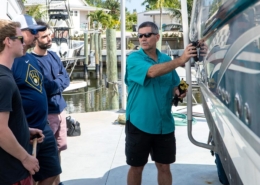
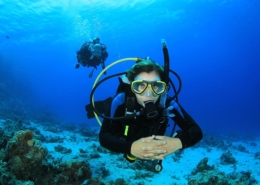
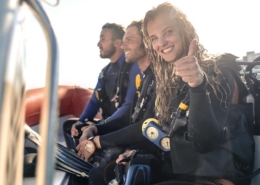
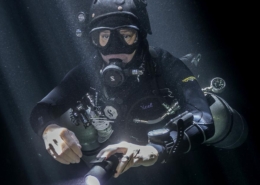
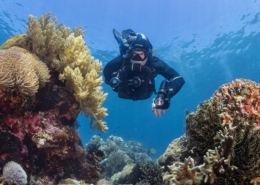
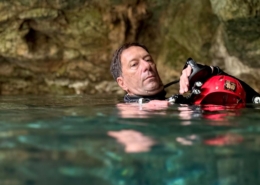
Leave a Reply
Want to join the discussion?Feel free to contribute!